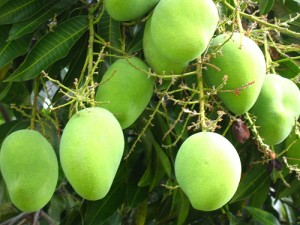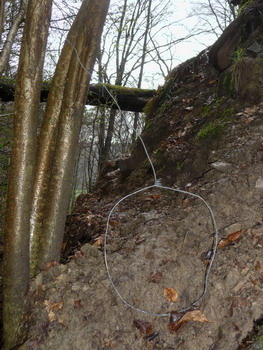 Although Mangoes in India are grown in a number of places, there is a particular variety called appe midi mango that is used for pickles and found in the western ghats. Midi means tender in Kannada language and appe midi is known to be the king of the tender mango varieties perfect for pickles. Now the Bangalore University is helping conserve the fast dying species.
Although Mangoes in India are grown in a number of places, there is a particular variety called appe midi mango that is used for pickles and found in the western ghats. Midi means tender in Kannada language and appe midi is known to be the king of the tender mango varieties perfect for pickles. Now the Bangalore University is helping conserve the fast dying species.
Quite famous for their sweet, sour and pungent taste, these mini mangoes are savoured as a delicacy especially in the southern parts of the country. But while the demand has increased, the number of this mango tree has declined due to constant neglect and destruction. These appe midi mango trees in the malanad region of Karnataka have been endangered. In an effort to revive the Mango orchards, a group of farmers have now collected together with the assistance of horticulture department.
The Bangalore University Department of Environment Sciences has undertaken the task of protecting the species by collecting saplings from farmers and nurturing them in the University grounds.
With over 102 varieties of wild species of tender mangoes, the department hopes it will become a mini gene pool.
“It will be a field gene bank. We brought these saplings last year. We are just supporting them in protection,” said Dr Nandini, Professor, DES.
Environmentalist A N Yellappa Reddy, who had initiated the programme,said that these ‘Appe midis’ (tender mangoes) known for their tasty pickles need to be protected considering their rarity. “We want to develop high yielding varieties of them,” he said.
Shivananda Kalve, the biodiversity expert who helped with the collection said that the names of these varieties were given usually after rivers in the area,
“Names like Ane hondada appe, Nagarakan appe, Badrahalli appe, which are nothing but the names of the places where it is found.”
Pickle making is a huge household sector industry with more than 700 species of unripe mangoes utilized to make this Indian meal accompaniment. With revenue generation of 90-100 crores a year, the demand for pickles is anywhere between 4,000 to 5,000 tons a year.
Few trees of appe midi mangoes have survived in the belgaum, shimoga, sagar taluk belts, and in north canara river valley. Plans are afoot to develop appe midi mango saplings by tissue culture and grafting. Appe midi mangoes cost between Rs.40 – Rs.150, as per quality.
Dr Nandini said that the department is now focussing on further research like genetic mapping, assessing its morphological characters and its nutrient qualities.
Given the departments initiation, it may soon be possible to revive the endangered wild varieities of the king of fruits again.
-Atula Gupta
Article source Image courtesy Robert and fabienne via cc Flickr






Book marked, I really like your blog!
Intresting blog. Creating Appe midi mangoes is a great idea.
INTERESTING AND UPLIFTING AND INFORMATIVE —GOOD CHOICE TO BOOKMARK
Thank you RWATTS…keep visiting.
You had done great work for conservation. Keep it up.